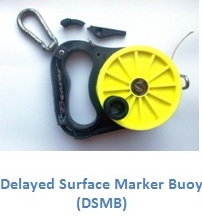Snorkeling & Scuba Diving May Turn Dangerous
April 29, 2015 | Category: Automobile Accidents | ShareSnorkeling and scuba diving accidents happen each year, particularly in the "Sunshine" state of Florida with its many miles of coastline and appeal of cruise ship passengers wishing to have closer looks at Florida marine life and fauna. Snorkeling and scuba accidents, because of their nature, can lead to substantial injuries and even death.
ABC7 reported on March 24, 2015 that three snorkelers died on the same day in different locations in the Florida Keys.
A 72-year-old man from San Antonio, Texas was snorkeling on the "Key West Fury" with his partner. Both were experienced divers, however, the 72-year-old went unconscious, was pulled back into the boat and later died at the hospital.
While snorkeling at Molasses Reef off of Key Largo, a 64-year-old woman died after having trouble shortly after entering the water.
An Illinois man, who was also 72 ,was snorkeling in the Dry Tortugas when he went unconscious and later died.
ABC7 reports that all three cases are under investigation and the causes are not yet determined.
Propeller Safety.com reported that a man was injured while snorkeling with two others on October 17, 2014 a mile and a half off Haulover Inlet in Florida. It was early afternoon when the three snorkelers were approached by a boat. Two men were able to get safely away; one did not. He was struck by the propeller(s) of the passing speedboat. The injured man had serious injuries and underwent multiple surgeries.
Dr. Peter Denoble, research director of DAN (Divers Alert Network) says, "While each accident may be different and some of them occur in an instant, most accidents can be represented as a chain of multiple events that lead to a deadly outcome. Removing any link from that chain may change the outcome." (The DAN Annual Diving Report is published annually by the Divers Alert Network. It reports on decompression illness and diving fatalities. For a free download click here: www.diversalertnetwork.org)
 Equipment failure causing a rapid ascent of a diver was reported by the Divers Alert Network. The dive was in relatively shallow water, 8 foot depth, on a calm sunny day with a channel visibility of eight feet. The diver said: "After about 15 minutes of underwater filming, we proceeded to ascend, a normally straightforward process: deploy the DSMBs (delayed surface marker buoys) and gently surface. But diving can spring unexpected challenges. The DSMB I was using is the self-inflating type using a small previously charged cylinder. Owing to the local conditions, it was necessary to hold the reel, inflate and release the buoy while being slightly negatively buoyant on the seabed. On this instance, the ratchet release lever broke at its weakest point where it pivots, leaving the reel jammed at precisely the moment when the buoy should be released. The simple solution would have been to let go of the reel and recover it later. However, when the lever broke, its spring caught my glove like a fish hook and resulted with me attached to the inflated DSMB rapidly going up."
Equipment failure causing a rapid ascent of a diver was reported by the Divers Alert Network. The dive was in relatively shallow water, 8 foot depth, on a calm sunny day with a channel visibility of eight feet. The diver said: "After about 15 minutes of underwater filming, we proceeded to ascend, a normally straightforward process: deploy the DSMBs (delayed surface marker buoys) and gently surface. But diving can spring unexpected challenges. The DSMB I was using is the self-inflating type using a small previously charged cylinder. Owing to the local conditions, it was necessary to hold the reel, inflate and release the buoy while being slightly negatively buoyant on the seabed. On this instance, the ratchet release lever broke at its weakest point where it pivots, leaving the reel jammed at precisely the moment when the buoy should be released. The simple solution would have been to let go of the reel and recover it later. However, when the lever broke, its spring caught my glove like a fish hook and resulted with me attached to the inflated DSMB rapidly going up."
Many times these accidents can be prevented. They are frequently caused by poorly maintained or faulty equipment, improper signaling, poor judgment, or inadequate training or supervision.
The U.S. Coast Guard has standard procedures to help ensure snorkeler' and scuba diver' safety. It is a requirement that companies in the business of offering snorkeling and scuba diving services follow these standards, but often they do not.
There are numerous types of injury and death cases associated with snorkeling and scuba diving accidents. Here are just a few:
- Boat run over
- Water conditions that are dangerous
- No, or inadequate, training
- No, or inadequate, supervision
- Poorly maintained equipment
- Defective equipment
- Dive operator negligence
- Out-of-air emergencies
- Dive buddy negligence
"Should you be injured as the result of a snorkeling or scuba diving accident, you may be entitled to compensation for current and future medical bills, any lost income and pain and suffering," says Southwest Florida Accident Attorney, Randall Spivey of Spivey Law Firm, Personal Injury Attorneys, P.A.
Southwest Florida Accident Attorney, Randall L. Spivey is a Board Certified Trial Attorney – the highest recognition for competence bestowed by the Florida Bar and a distinction earned by just one (1%) percent of Florida attorneys. He has handled over 2,000 personal injury and wrongful death cases throughout Florida. For a free and confidential consultation to discuss your legal rights, contact the Spivey Law Firm, Personal Injury Attorneys, P.A., in Lee County at 239.337.7483 or toll free at 1.888.477.4839,or by email to Randall@SpiveyLaw.com. Visit SpiveyLaw.com for more information. You can contact Spivey Law Firm, Personal Injury Attorneys, P.A.in Charlotte County at 941.764.7748 and in Collier County 239.793.7748.

